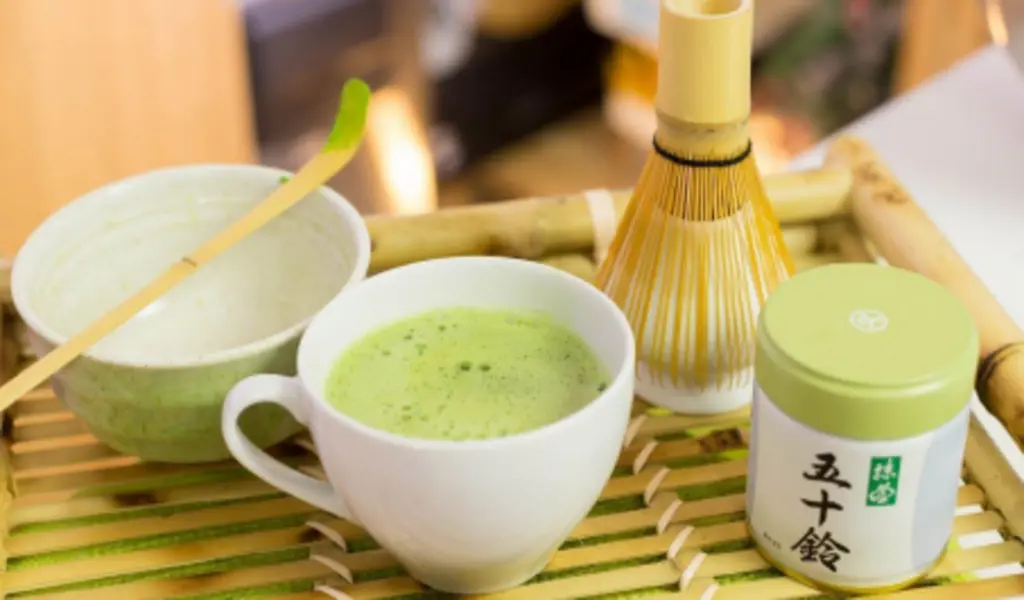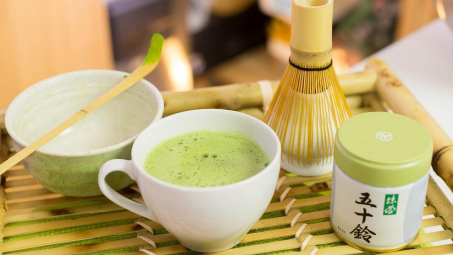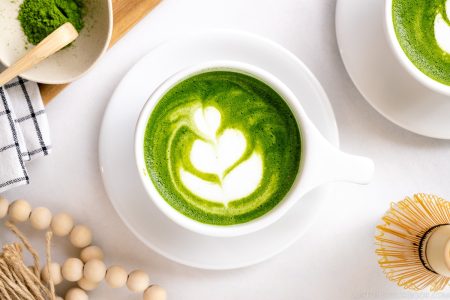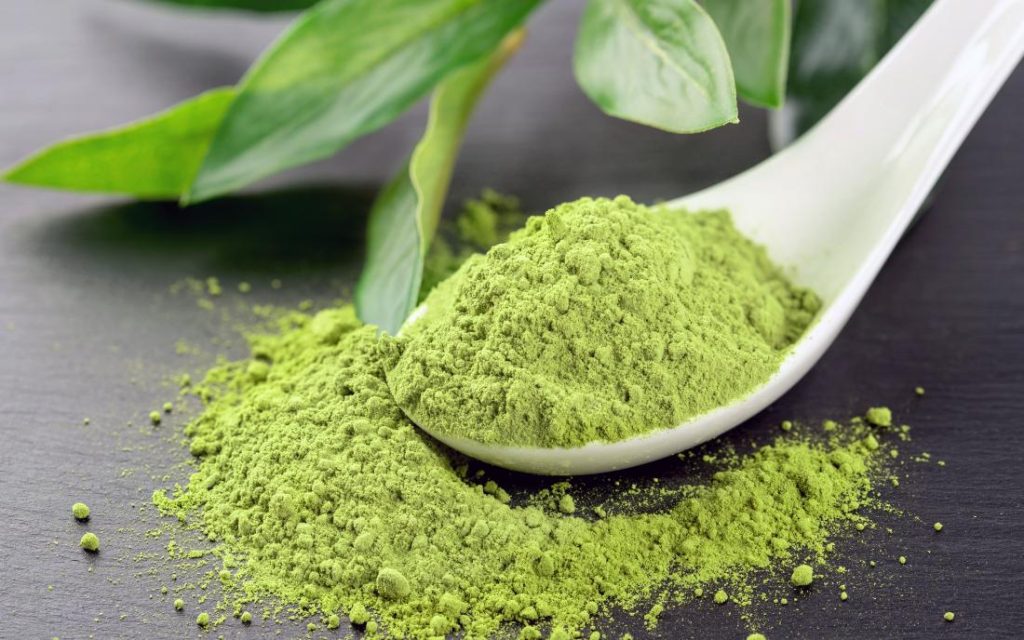Health
The Nutritional Profile of Matcha: Understanding its Sports-Specific Benefits

Matcha, a finely ground powder of specially grown and processed green tea leaves, has been gaining popularity worldwide due to its unique taste and numerous health benefits. But did you know that matcha can also offer sports-specific benefits? In this article, we will delve into the nutritional profile of matcha and explore how it can enhance athletic performance and recovery.
What is Matcha?
Matcha is a type of green tea that is native to Japan. Unlike traditional green tea, where the leaves are steeped and then discarded, matcha involves consuming the entire leaf, providing a more concentrated source of nutrients. The leaves used for
matcha are grown in the shade, which increases their chlorophyll content and gives matcha its vibrant green color.
Nutritional Profile of Matcha
Matcha is a nutritional powerhouse, packed with a variety of vitamins, minerals, and other beneficial compounds. Here’s a quick look at some of the key nutrients found in matcha:
Catechins |
|---|
• : These are a type of antioxidant that are particularly abundant in matcha. The most notable catechin in matcha is epigallocatechin gallate (EGCG), which has been linked to numerous health benefits.
L-Theanine |
|---|
• : This is an amino acid that promotes relaxation without drowsiness. It also enhances brain function and mood.
Caffeine |
|---|
• : Matcha contains a moderate amount of caffeine, which can help improve focus and energy levels.
Vitamins and Minerals |
|---|
• : Matcha is a good source of vitamins A and C, as well as potassium, iron, and calcium.
Matcha and Sports Performance
The unique combination of nutrients in matcha can offer several benefits for athletes and those engaged in regular physical activity. Let’s delve into some of these benefits:
Enhanced Energy Levels and Endurance
The caffeine present in matcha provides a natural and sustained energy boost without the jitters or crash associated with other caffeinated beverages. This is because the L-theanine in matcha slows the release of caffeine, leading to a more gradual and longer-lasting energy boost. This can help athletes maintain higher energy levels and endurance during their workouts or competitions.
Improved Focus and Concentration
The L-theanine in matcha not only promotes relaxation but also enhances brain function. It increases the production of alpha waves in the brain, which are associated with a state of relaxed alertness. This can help athletes stay focused and mentally sharp during their performance.
Antioxidant Protection
The high levels of catechins in matcha provide potent antioxidant protection. Antioxidants help neutralize harmful free radicals produced during intense physical activity, reducing inflammation and aiding in recovery.
Boosted Metabolism
Matcha has been shown to increase metabolism and fat burning, both of which can aid in weight management and improve athletic performance.
Incorporating Matcha into Your Sports Nutrition Plan
Incorporating matcha into your sports nutrition plan is easy and versatile. You can drink it as a tea, add it to smoothies, or incorporate it into energy bars or other recipes. However, it’s important to choose a high-quality matcha powder to ensure you’re getting the most benefits.
Boosting Your Athletic Performance with Matcha
Incorporating matcha into your sports nutrition plan can be a game-changer for your athletic performance and recovery. This versatile superfood can be consumed in various ways to suit your taste and dietary preferences. Here’s how you can integrate matcha into your sports nutrition regimen:
Savoring Matcha as a Standalone Beverage
One of the simplest ways to enjoy matcha is to drink it as a tea. This traditional method allows you to fully appreciate the unique flavor profile of matcha while reaping its nutritional benefits. A cup of matcha tea before your workout can provide a sustained energy boost and enhance your focus.
Blending Matcha into Smoothies
For those who prefer a more refreshing option, adding matcha to your smoothies can be a great choice. The subtle earthy flavor of matcha pairs well with fruits like bananas, berries, and mangoes. Plus, you’ll get an extra dose of antioxidants and vitamins from the fruits.
Incorporating Matcha into Energy Bars and Other Recipes
If you enjoy experimenting in the kitchen, matcha can be a fantastic ingredient to incorporate into your homemade energy bars, protein balls, or even pancakes. These matcha-infused snacks can serve as a pre-workout energy boost or a post-workout recovery aid.
Choosing the Right Matcha Powder
Regardless of how you choose to consume matcha, it’s crucial to select a high-quality matcha powder. Look for matcha that is vibrant green in color, which indicates a
higher nutrient content. Organic matcha powders can also provide assurance that you’re not consuming unwanted pesticides or other contaminants.
Remember, the key to maximizing the sports-specific benefits of matcha lies in its regular consumption as part of a balanced diet. So, find your favorite way to enjoy matcha and make it a part of your sports nutrition plan today!
Conclusion
Matcha is more than just a trendy beverage; it’s a nutritional powerhouse that can offer numerous benefits for athletes and fitness enthusiasts. From boosting energy and focus to aiding recovery, matcha is a worthy addition to any sports nutrition plan.
Frequently asked questions
1. How much matcha should I consume for sports benefits?
While the optimal amount can vary depending on individual factors, a general recommendation is to one to two cups of matcha tea per day. This amount provides a significant dose of antioxidants and other beneficial compounds without overdoing it on caffeine.
2. Can matcha help with weight loss?
Yes, matcha can aid in weight loss. It has been shown to increase metabolism and fat burning, which can help with weight management. However, it’s important to note that matcha should be used as part of a balanced diet and regular exercise regimen for optimal results.
3. Is matcha better than regular green tea?
Matcha and regular green tea both come from the same plant, but matcha is grown and processed differently, which results in a higher concentration of nutrients. Therefore, matcha can offer more health benefits than regular green tea, including a higher antioxidant content.
4. Are there any side effects of consuming matcha?
While matcha is generally safe for most people, consuming more than two cups per day is not recommended due to its high caffeine content. Additionally, matcha leaves may contain contaminants from the soil in which the plant grows, so it’s important to choose a high-quality, preferably organic, matcha powder.
SEE ALSO: 5 Surprising Facts About Human Metapneumovirus That Will Leave You Breathless!






























